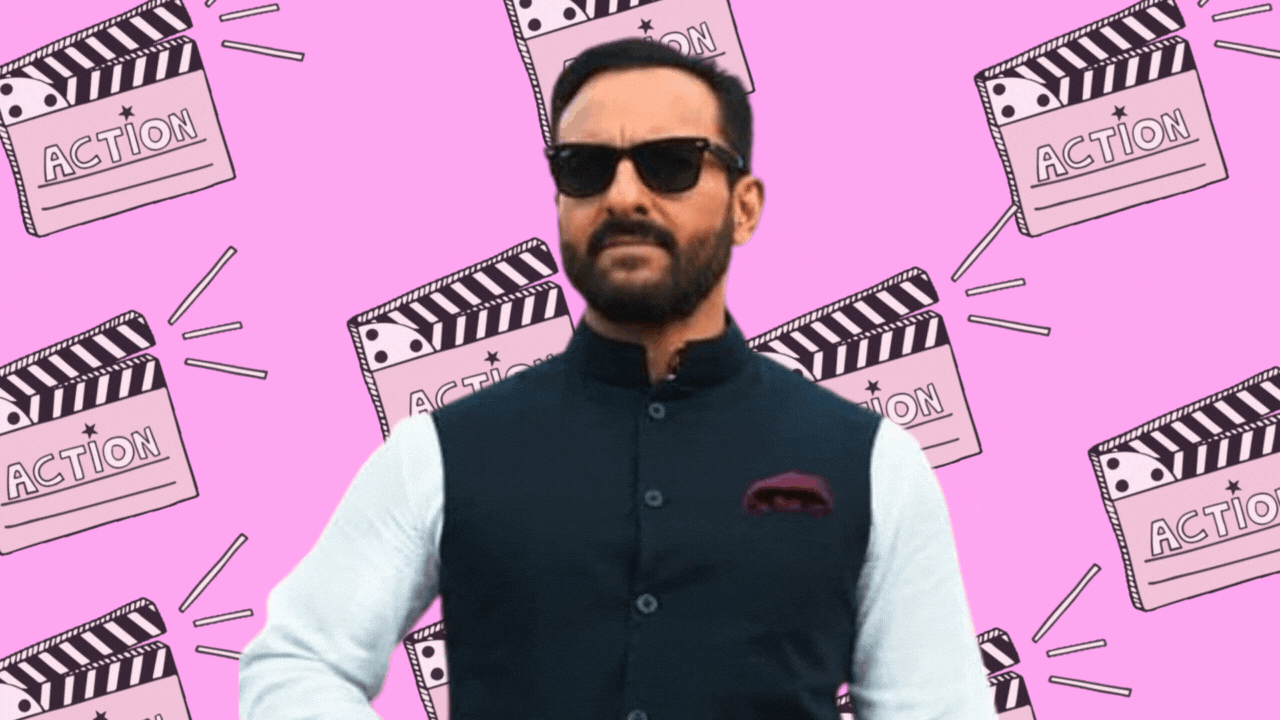Saif Ali Khan thinks those who call for boycotts of films are not ‘genuine audience’ and we agree

Bollywood has been facing back to back challenges with films releasing one after the other and very few gaining commercial success. While some of that might be due to the quality of the film itself, a large part is now because of calls for boycotts and bans. We saw it happen with Aamir Khan’s Laal Singh Chaddha when a clip from his 2015 interview became the reason behind the film getting banned and Ranbir Kapoor’s Brahmastra over his comment from 11 years ago about him eating and enjoying beef. We see this in Pakistan too.
On Saturday, actor Saif Ali Khan appeared on CNBC-TV18’s Weekender for an interview where he was asked about the boycott culture in Bollywood. “This section of the people, who I think are [boycotting] I am not sure if it’s the genuine audience. Using a soft target, for example a bad movie, to say, ‘Ok let’s ban this or cancel that’… I also think it is really sad that Bollywood has not shown unity. Until we have that ability to take that step, we will never really know the truth of how effective this boycott culture is.”
Khan added that cancel culture is generally scary as it is a worldwide phenomenon. But when a film is about to release and so many people are on the line, he suggested it’s “simpler to keep a low profile and get it out of the way.”
“These people who say ‘boycott boycott’, I don’t think are the audience, personally. Because people like entertaining themselves, people like watching movies, so they are not going to not watch a movie. We don’t really have much to do in our country really. Sometimes, you can’t go for a walk in the park or take a quiet boat ride with your kids. Entertainment is limited in cities like ours, so movies are one of those things,” said the Vikram Vedha actor.
His point of view on boycott culture fits best with what’s happening in Pakistan with Saim Sadiq’s Joyland and many other films before that. It is indeed scary how cancel culture has prevailed against new content and storylines in Pakistan, no matter how in demand those stories are. And it might just be because the archaic mindset of many members of society, which refuses to accept any story beyond wife-beating and cheap jokes, will not change.
Unfortunately, that’s the type of content that aligns with the “social values and moral standards” of our society. There’s little to no space for films that depict the true face of society here. And then comes the question of if we can’t separate art or perhaps even fiction from reality, what’s the point of having cinema culture in Pakistan?
Pakistani cinema culture comes alive and thrives when item numbers are part of hit films, inappropriate jokes are the star highlight of ‘family films’ and the consumption of alcohol is normalised. But God forbid a film shows Alina Khan, a trans actor playing a trans character in Joyland. All hell breaks loose and suddenly society is concerned about the values and morals the film might encourage.
It seems our collective biases come alive when we see transgender characters in films, but not when we see men on screen cracking crude jokes or objectifying women.
Like Khan said, this form of cancel culture is scary. We need to let entertainment be entertainment and not confuse it for a school lesson. At the end of the day, if you don’t find a film worth watching, you have the option to simply not watch it. Let everyone in the audience decide what they want to watch and how much they like it themselves.

